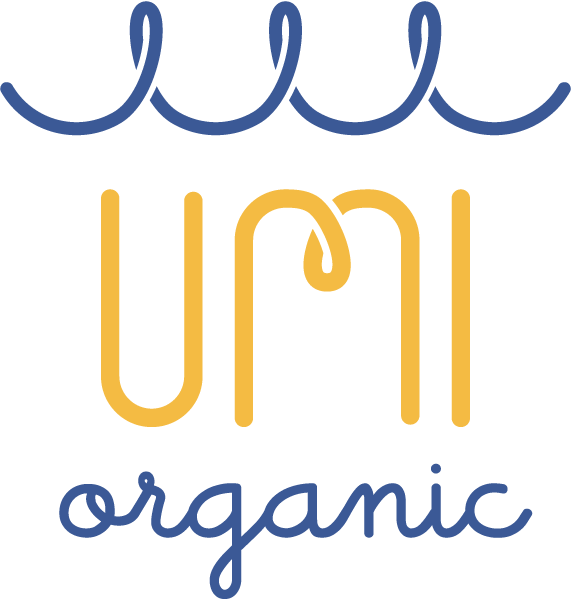Camas Country Mill has become a leader in our region and nation for bringing back medium-scale infrastructure and processing to agricultural communities. Tom and Sue Hunton lead both the mill and a farm growing a diversity of grain and pulse crops, both organic and conventional. Outside the old schoolhouse they have converted into a bakery and education center in Junction City, you can see tiny test plots of dozens of the varieties in their fields — from chickpeas and lentils to hullless barleys and landrace wheats. Camas is simultaneously a throwback to a time when many Western communities had a mill and modest silos, as well as an innovator looking ahead as we strive to rebuild human scale infrastructure that creates real food security.
The mill grinds more than just the Hunton’s harvests. They purchase from other regional farmers to fill a growing demand for flours that have great flavor and high nutrition. We buy our organic whole grain Edison and Durum from Camas for the yakisoba noodle we developed for Portland Public Schools. Tom Hunton was generous enough to share Camas’ history with both grains:
The Origins of Edison Wheat
Green Edison in July. Photo by Margo Lowry, Camas Country Mill
Edison is a hard white spring wheat developed by Merrill Lewis of Bow, Washington. Merrill has been a long-time hobby cereal breeder, and Edison is most likely the most successful variety he released. Merrill had developed an earlier hard white spring wheat that he shared with a producer co-op. They failed and all seed was lost. I first saw Edison in plots at the Mount Vernon Research Center of WSU. Steve Lyon [Senior Scientific Assistant of the Bread Lab at WSU] had befriended Merrill and put the Edison in with plots of other spring wheat varieties for comparison. When we at Camas Country Mill first began to mill flour, Merrill approached our team to mill some samples. We came to an agreement that we would maintain the integrity of his beloved Edison as well as possible and that we would work with Merrill’s son, Hal of Amity, Oregon, who produces high quality, hand-rogued plots of Edison wheat seed approximately every 3 years to maintain a pure line for planting commercial fields, both organic and conventional.
Merrill chose the Edison name after the nearby town of Edison, Washington, which had at one time been a wheat shipping port for Skagit Valley. Edison now has a well-earned reputation as a reliable hard white spring wheat in Western and central Oregon, Western Washington and the Blue Mountain area of Oregon and Washington. It has vigorous growth habits and possesses an awned head and white chaff. It threshes fairly easily and cleanly. It is suitable for bread, tortillas and pasta and is often the easiest for bakers to make the conversion from an all-purpose flour to more whole grains.
The Story of Durum at Camas Country Mill
Green durum in July. Photo by Margo Lowry, Camas Country Mill
Durum wheat was first grown at our farm [Huntons’ Farm] in the Willamette Valley in 2014. We trialled three varieties commonly produced in California desert growing regions in small 3-acre plots with identical seeding rates, fertility and nutrition. Durum wheat is a rarity in the Pacific Northwest as it tends to demonstrate the highest pasta production qualities when grown in relatively arid areas. California, Arizona and North Dakota are major durum production areas as well as some Canadian provinces. As our Pacific Northwest climate continues to evolve, durum may become better suited for production here.
The 2014 plots were planted to Miwok, Volante and Fortissimo varieties. Miwok is a UC Davis release that is a low cadmium accumulator, which can be a problem in some soils. Volante and Fortissimo were released by Resource Seeds in 2008. We evaluated overall vigor, disease resistance, yield and pasta qualities as tested by the California Wheat Commission lab in Woodland, California. First year results were in favor of Fortissimo, then Volante and lastly Miwok. It was not surprising to see some fairly large differences since we grew the durum out of its normal “place.” We have since settled on Fortissimo as our preferred seed source, but will likely test some other varietals again in 2020.
Durum is unique in that it is the only wheat with a yellow endosperm, which is usually reflected in the flour color. Durum is the hardest grain we mill, and it is a very dense flour [in terms of weight per volume]. Durum flour in breads produces an attractive yellow or golden coloration. Durum is being utilized in more pasta and bread applications all of the time and will likely continue to add versatility, color and flavor to the foods we enjoy.
—Tom Hunton, Camas Country Mill
Learn more about Camas Country Mill by visiting their schoolhouse at 91948 Purkerson Road, Junction City, OR 97448, and buy their rolled grains and flours on their website: camascountrymill.com.


